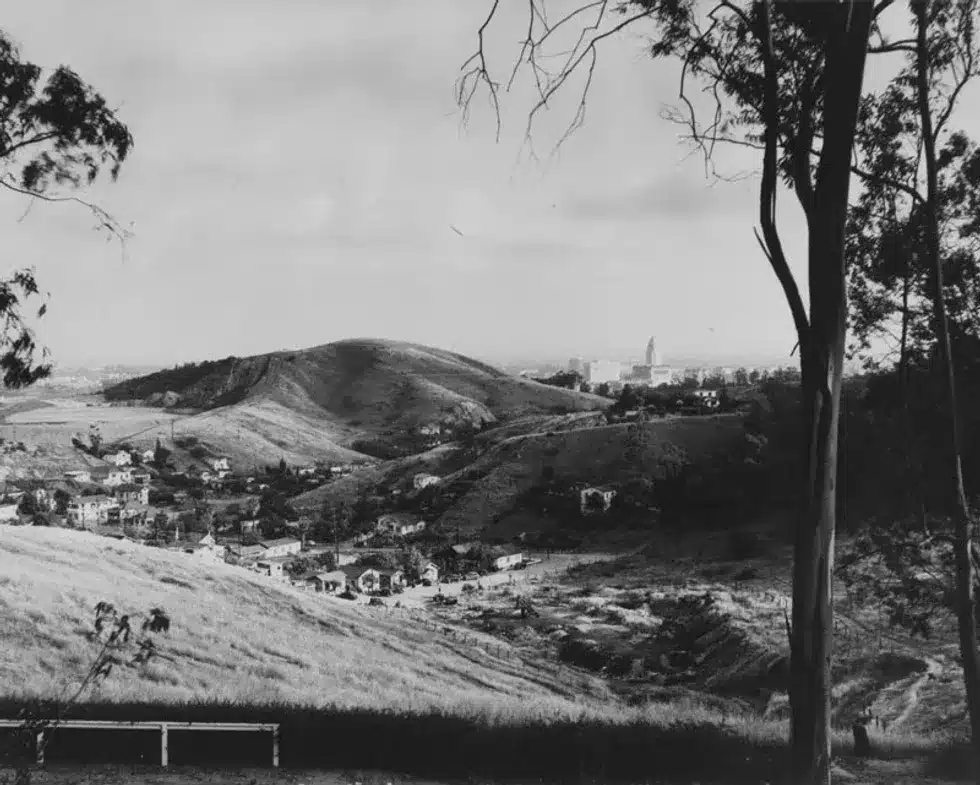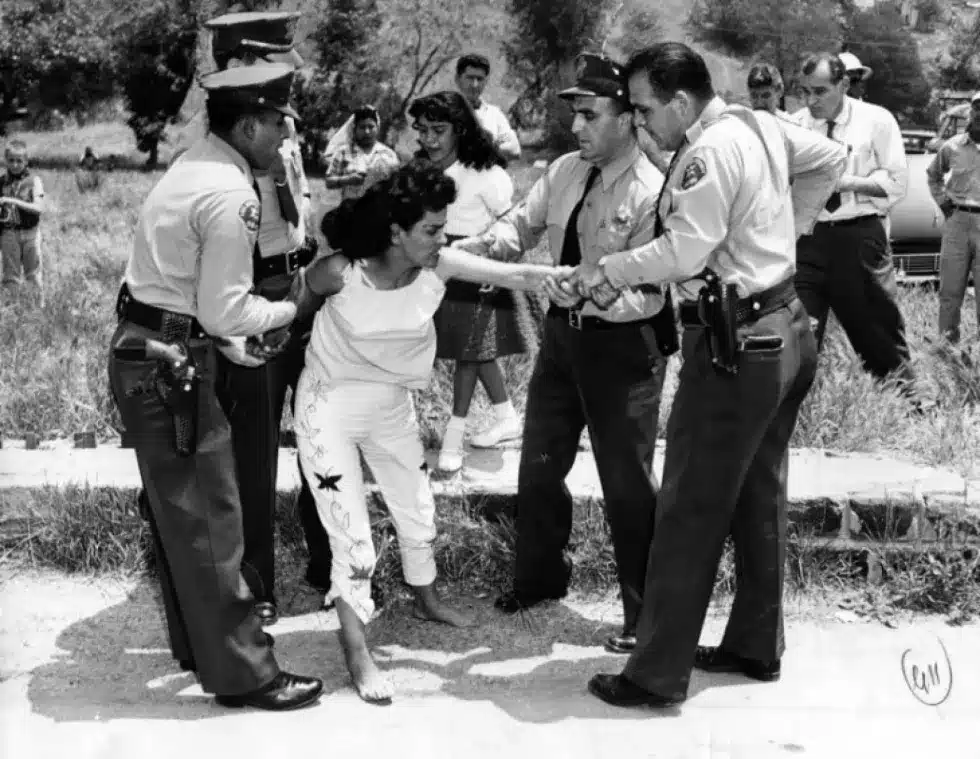Bill Seeks Reparations for Mexican American Families Forcibly Displaced to Build Dodger Stadium
Once a vibrant community of Mexican Americans, Chavez Ravine was demolished under the guise of “urban renewal.” Families lost everything in the name of private real estate development.

A new bill introduced in the California Legislature aims to address a historical injustice by seeking reparations for families who were forcibly displaced from their homes in Los Angeles in the 1950s to make way for what is now the Dodger Stadium. The proposed legislation, named the “Chavez Ravine Accountability Act”, represents a significant step toward acknowledging and rectifying the harm done to the Mexican American community.
The story of the Chavez Ravine displacement has been well-documented, but it has taken over 70 years for those affected to see some kind of acknowledgment. In recent years, descendants of marginalized communities in California, who founded the nonprofit organization Buried Under the Blue, have had success seeking reparations for land that was taken from them, and this bill is a reminder that the hard work they’ve put in hasn’t been in vain.

The Shameful Displacement of the Chavez Ravine
The Chavez Ravine, the land on which the Dodger Stadium has been standing for 62 years, used to be a vibrant community of Mexican Americans. Despite being labeled a “poor man’s Shangri La,” it was a self-sufficient city covering over 300 acres. However, in the early 1950s, the Los Angeles City Housing Authority set its sights on it for redevelopment.
Claiming “urban renewal,” residents of the Chavez Ravine received letters demanding the sale of their homes for a proposed housing project called “Elysian Park Heights.” Many of the residents were promised housing when the project was completed, but most of them received a small compensation or nothing at all. The displacement of the Chavez Ravine was violent and traumatic, as people were forcibly removed from their homes, which were later demolished.
One of the figures of Latino resistance who stand out in this dark episode of L.A. history is Aurora Vargas, known as “Lola,” who reportedly said, ‘They’ll have to carry me [out].” That’s exactly what they did, prompting the infamous image of Vargas being carried out by a group of deputies as she refused to leave her home behind, fighting until the last moment. Vargas wasn’t the only one who resisted, and the displacement was marked by adults and children screaming and crying hysterically.

The promised housing project never came to be because once the land was cleared, the owner of the Brooklyn Dodgers, Walter O’Malley, saw the opportunity to secure the land for a fraction of what it was worth. Eventually, the Dodger Stadium was built, betraying the promises made to the Chavez Ravine residents who ended up homeless, struggling to get back on their feet.
What Does This Chavez Ravine Accountability Act Mean?
Written by Assemblywoman Wendy Carrillo, a Democrat from Los Angeles, the “Chavez Ravine Accountability Act” is the response to long-standing demands from organizers and descendants of the displaced families for restitution. If passed, a nine-member task force will be created to oversee the compensation process for all the families.
The bill emphasizes the injustice displaced families experienced, emphasizing that they weren’t only removed from their homes, but also deprived of the opportunity to own homes and create intergenerational wealth. Moreover, it offers different forms of compensation for the families, including city-owned land or fair-market-value payments.
Another key aspect of the bill is that, if passed, it will lead to the establishment of a permanent memorial at the site to honor the displaced families and preserve the memory of their communities. Additionally, a searchable database detailing the history of land acquisition will be created to facilitate the verification of eligible recipients.
Press conference and protest for families displaced from #ChavezRavine, LA.
The bill has garnered support from descendants of the displaced families, including Melissa Arechiga, Jeannie Arechiga, and Vincent Montalvo, who founded the nonprofit organization Buried Under the Blue to raise awareness about the displacement’s legacy. While the Arechigas and Montalvo are grateful for this step in the right direction, they’re also advocating for the Dodgers to be involved in the reparations because they continue to benefit from the land.
What Comes Next?
While the introduction of this bill is a significant milestone, there’s still a long way to go. The legislative process is long and the bill requires consideration by the California Assembly’s Judiciary Committee, approval by both chambers of the State Legislature, and the signature of Governor Gavin Newsom before it can become law.
For advocates and the affected community, the bill validates their efforts and it means a step toward rectifying a historical injustice that has been ignored for so long. It also echoes the strength and spirit of resistance shown by people like Aurora Vargas, and it offers the families hope for healing after their lives were altered so drastically.







